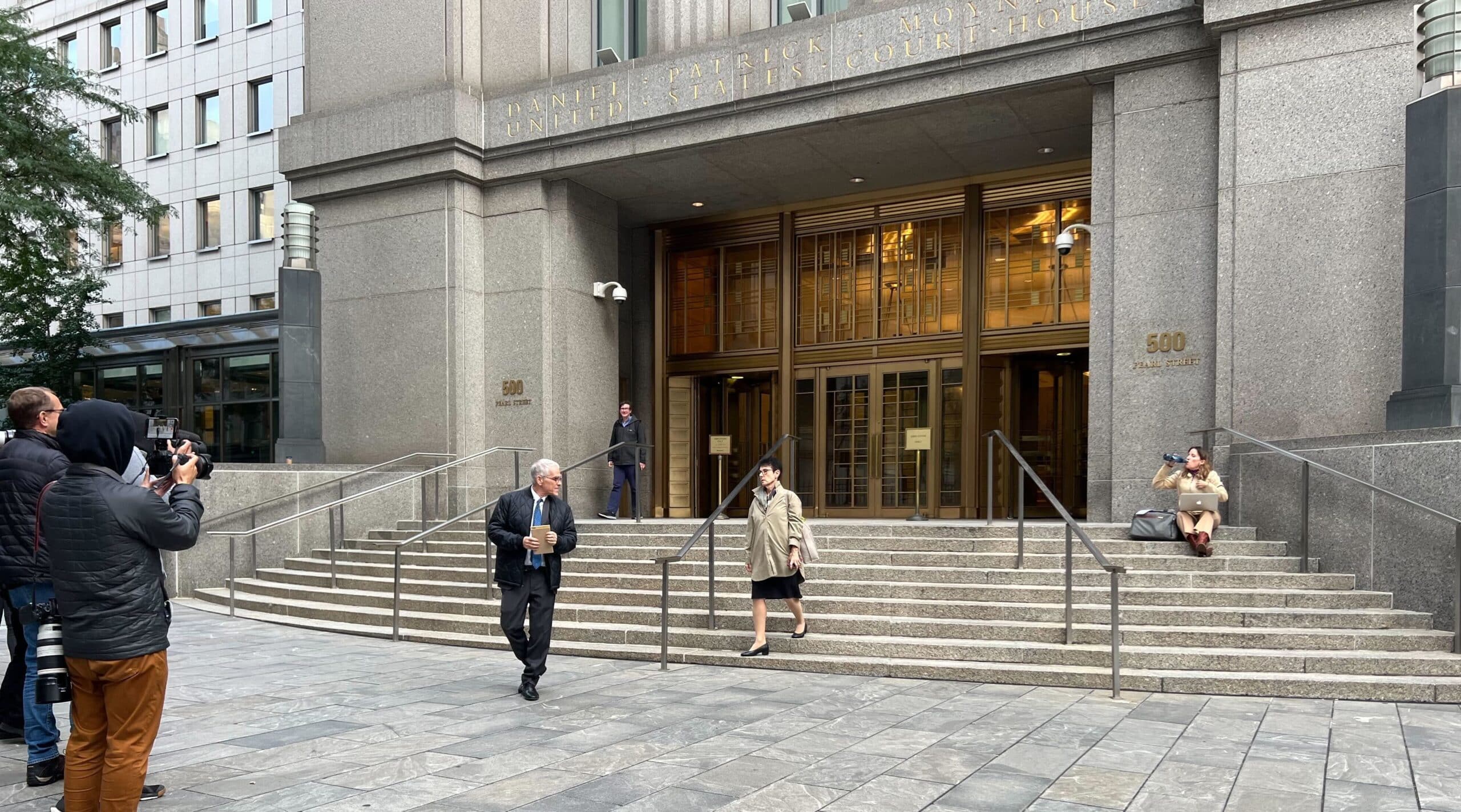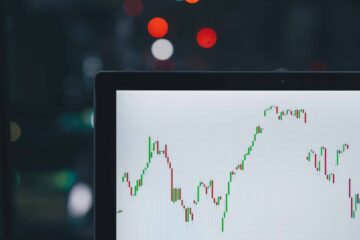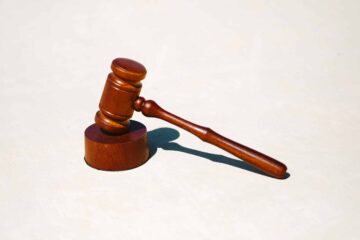
Posted October 12, 2023 at 11:34 pm EST.
NEW YORK—The cross-examination of the prosecution’s star witness, Caroline Ellison, concluded Thursday, without the defense seeming to land any punches. A few times, Sam Bankman-Fried’s legal team reverted back to its habit from last week of asking questions that simply repeated information already produced without making any new points about them.
This, among other things, led to frequent tense sidebars between the defense and prosecution. And while the jury couldn’t hear what was said, the heated interactions were on full display.
Still, shocking new facts came to light, such as that, around the time that Alameda had “borrowed” $14 billion of FTX customer money, Sam Bankman-Fried told Ellison he wanted to make a big investment in messaging platform Telegram. And after the cross-examination ended, the testimony of the next witness got “FUD” and “YOLO” into the court transcript.
A few points, but also aimlessness
The defense team’s initial inquiry Thursday morning touched upon a number of topics, though it wasn’t always clear where the line of questioning was going, or what points they wanted the jury or other observers to take away. For instance, defense attorney Mark Cohen asked questions about various Alameda accounts on FTX, eliciting information such as the ballpark number of sub-accounts Alameda had, but didn’t seem to draw a conclusion.
Early on, Cohen was able to score a few points for his defendant. He mentioned an early incident in which a large percentage of Alameda employees left the firm before Ellison arrived; although SBF had hidden the fact of the mass departure from her initially, the defense—after a long discussion between the lawyers with the judge in the sidebar—got her to say she ultimately concluded SBF had been right in the dispute. Under his questioning, she also admitted that when she was co-CEO and CEO, Bankman-Fried was not only absent for long periods of time from Alameda but also didn’t make day-to-day decisions for the trading firm.
Other subjects Cohen touched upon were how Bankman-Fried’s ambition was greater than hers (though she said SBF encouraged her to be more ambitious), differences in their fashion style, the contrast between his approach to the media and hers, that she was more conservative when it came to business than Bankman-Fried, etc. For instance, she said she did not support plans to start FTX.
However, at this point, Cohen presented Ellison with two documents establishing that they were the types of documents that she would regularly produce in her line of work. With the third document, she didn’t say it was part of her regular practice. With additional questions, prosecutor Danielle Sassoon began objecting to each question or rephrasing questions until finally, the lawyers had a back-and-forth over which laws allowed or didn’t allow this document to be used as evidence. Ultimately, they went for a second time to the sidebar – and testimony for the day had barely begun.
At the sidebar, Cohen argued that he wanted to use the document to rebut that Ellison was just taking instructions from SBF and instead show that she really ran Alameda. But based on the grounds of this not being a document that Ellison regularly updated, the prosection’s objections were sustained.
Laying the groundwork to blame Ellison?
In further cross-examination, Ellison said she and Sam Trabucco became co-CEOs of Alameda in 2021, handling the trading firm’s day-to-day operations. Although it seemed Cohen wanted to portray them as the decision-makers, she said that although Ellison and Trabucco provided input into the firm’s trading strategies, Bankman-Fried was the ultimate decision-maker.
By the end of 2021, Trabucco had stopped coming into Alameda’s offices. Ellison said she and Bankman-Fried had conversations about replacing Trabucco with Ben Xie, Alameda’s head of trading, but Ellison didn’t think it made sense.
The defense then asked a series of questions about her duties, potentially laying the groundwork to promote the theory later that she was in charge: for instance, showing she handled accounting, balance sheets, and, for a period, lender relationships, etc.
Ellison, in her testimony, said she had considered resigning from Alameda at various points, including in the summer/fall of 2022, shortly before Alameda imploded. She said when SBF found out, he “told me that I couldn’t, that I was too important to keep at Alameda, and he thought I needed to stay at Alameda.” Ellison didn’t resign because, at the time, she trusted the defendant’s opinion and didn’t want the firms to collapse.
Defense stumbling
Then a string of repetitive questions ensued. Cohen asked Ellison about Alameda’s relationship with its third-party lenders, her compensation and her romance with the defendant. At this point, the prosecution objected, saying, “Your Honor, we’ve now had several minutes of simply repeating the direct examination.” When Cohen resumed, he asked her a few questions about how their breakup affected her ability to communicate with SBF at work. He then asked about the days post-bankruptcy when she had retreated to her parent’s house and the FBI came. She acknowledged they seized a computer from her boyfriend, who had also worked at FTX and/or Alameda, as well as a computer belonging to her mother.
At this point, a string of questions about her cooperation agreement ensued, which was confusing, because these typically come at the end of the cross-examination and the schedule wasn’t even halfway through the morning. This prompted Judge Lewis Kaplan to say, “Mr. Cohen, I’m not rushing you, but in almost 30 years, most cross-examinations of cooperators I have seen have ended with what you just did.” Cohen responded he thought he would “mix it up.”
Another confusing line of questioning almost seemed to imply that Ellison hadn’t really committed securities fraud—as if the defense were concerned she had incorrectly pleaded guilty to one of her charges.
Just how responsible was Ellison?
Raising questions about Ellison’s leadership, the defense asked about how the collapse of Terra/Luna in May 2022 impacted the trading firm. Ellison said Alameda lost roughly $100 million in UST, concluding “that it had been a bad idea, a mistake at the time to own UST.”
Ellison said she had multiple conversations with Bankman-Fried starting in early 2022 about hedging more, or “ways to reduce Alameda’s risk by selling assets that were correlated with Alameda’s portfolio.” It wasn’t until September 2022 that Ellison put on hedges to protect Alameda from the crypto market sliding.
The defense team introduced a document by Ellison updating SBF about Alameda. In it, she said the “biggest factor” that prevented Alameda from making as much money as it could was its leadership. “Trabucco and I weren’t as good managers or leaders as we could be, and we weren’t … pushing employees to make new things or do better in the way that I wished we were,” she had written.
Cohen also probed Ellison about her personal competition against Modulo Capital, another trading firm in which Bankman-Fried had invested, which was run by another one of SBF’s exes. Ellison said the two firms competed on talent, trading strategies, and funding from Bankman-Fried. Referring to Modulo, Ellison confessed that she wanted to “crush them.”
Cross-examination gone awry?
At times, it seemed the defense tried to push an argument, but Ellison’s response would make it unviable. For instance, Ellison verbally told Cohen that in 2022 she thought Alameda had performed terribly. However, he pointed out, in a July 2022 Google doc written by Ellison, which she shared with Alameda employees, she indicated Alameda had executed very well in the year. Ellison then explained Alameda employees performed well, but the problem stemmed from the firm’s management. The Google doc was meant to keep the morale high for Alameda employees, but admitted that she “was misleading them” about her “true feelings.”
When the defense brought up SBF’s trip to the Middle East to fundraise around when Alameda owed FTX $14 billion, Ellison said that not only did he come back empty-handed, but he also now wanted to make a large investment in messaging platform Telegram.
Cohen asked Ellison about tweets she sent after Alameda’s balance sheet got leaked. In one, she wrote that Alameda had greater than $10 billion in assets not reflected on the balance sheet. However, during the cross-examination, Ellison admitted that the assets she was referring to actually personally belonged to Bankman-Fried.
Cross-examination ends with a whimper
Cohen again brought up the November 9th all-hands meeting, before which Ellison had reached out to Bankman-Fried via Signal asking for advice on what to tell employees. The defense reviewed their Signal chat and asked her if her goal was to get employees to stay, but she demurred: “I was trying to be honest and help them do whatever was in their best interest,” she said.
He then asked whether, in the all-hands, she had covered the topics of accounting, an internal software system known as “the pointer system,” Alameda’s interactions with lenders and whether she had revealed wrongdoing at the company. She said yes, and he then said, “But you were also asking them to stay.” She responded she didn’t ask them that but said it would be appreciated if they could help wind down the firm. And with that, the cross-examination of the trial’s star witness ended.
Enter Christian Drappi
Next up was Christian Drappi, a former Alameda software developer who started in May 2021 and whose testimony added credibility to Ellison’s assertion that Bankman-Fried was the ultimate decision-maker at Alameda when she was CEO, among other things.
In a short but effective testimony for the prosecution, Drappi first testified that while Bankman-Fried wasn’t Alameda’s CEO, SBF still had direct communication with the trading firm, possessed access to privileged data, and was involved in large trades involving, for instance, Japanese bonds, Japanese currency, and the NASDAQ index.
On November 8, Drappi was with two other Alameda employees and Ellison in the firm’s Hong Kong office when he learned that SBF announced Binance might acquire FTX. Drappi said he was “utterly shocked.”
In his description of the all-hands meeting on November 9, Drappi said Ellison, who was sitting on a beanbag surrounded by roughly 15 people, led the meeting and provided answers to people’s questions. He said her demeanor was “sunken,” “kind of slouching, “ and that she “did not display confident body language.”
When the prosecution asked Drappi whether the meeting was audio recorded, he said yes. Rick Best, another Alameda trader, had recorded it. Best had joined Alameda just three days prior.
In a series of audio clips of the meeting, words like “FUD” and “YOLO” were heard, and Drappi had to define each one for the jurors. Then he himself was heard on one of the clips, asking, “Was there a plan to make FTX users not fucked if this were to happen?”
Drappi asked Ellison in the meeting what the plan was for Alameda to pay back FTX customers to which Ellison said, “FTX was trying to raise in order to do this, but yeah, after the crash no one wanted to invest.” For Drappi, this was concerning, saying, “When a company raises money, it’s about… future growth and not to fill a hole in a balance sheet.”
In another clip where Ellison laughed, he said it was nervous laughter and characteristic of her.
Drappi then asked Ellison, “I’m sure this wasn’t like a YOLO thing?” And asked her who else knew. Ellison said she also talked to Bankman-Fried, Singh and Wang. On an audio clip played in the courtroom, another employee asked whose decision it was to use FTX customer deposits. Ellison had responded, “Uh, Sam, I guess.” She had explained earlier that she’d said, “I guess” as a “vocal tic,” because she “hadn’t gone into the meeting intending to cast blame on anyone, but I also wanted to be honest and open in answering my employees’ questions.”
In a mic drop for the prosecution, Drappi said that within 24 hours of the meeting, he resigned.
Zac Prince, founder of bankrupt crypto lending firm BlockFi
Thursday concluded with Zac Prince on the witness stand. Although he only spoke for 10 minutes, Prince described how BlockFi made it publicly clear its lending program would lend out customer deposits to generate revenue—a clear contrast to what happened at FTX.
He also noted that BlockFi lent out hundreds of millions of dollars to Alameda Research and went bankrupt itself. The trial begins again Friday with Prince’s testimony at 9:30 a.m.
Laura Shin contributed reporting.
- SEO Powered Content & PR Distribution. Get Amplified Today.
- PlatoData.Network Vertical Generative Ai. Empower Yourself. Access Here.
- PlatoAiStream. Web3 Intelligence. Knowledge Amplified. Access Here.
- PlatoESG. Carbon, CleanTech, Energy, Environment, Solar, Waste Management. Access Here.
- PlatoHealth. Biotech and Clinical Trials Intelligence. Access Here.
- Source: https://unchainedcrypto.com/sam-bankman-frieds-defense-team-could-not-break-caroline-ellison/
- :not
- :where
- $100 million
- $UP
- 10
- 11
- 12
- 15%
- 2021
- 2022
- 2023
- 24
- 30
- 8
- 9
- 9th
- a
- ability
- Able
- About
- absent
- access
- Accounting
- Accounts
- acknowledged
- acquire
- actually
- added
- Additional
- admitted
- advice
- affected
- After
- again
- against
- Agreement
- Alameda
- ALAMEDA RESEARCH
- allow
- allowed
- almost
- already
- also
- Although
- always
- ambition
- ambitious
- among
- an
- and
- announced
- Another
- answers
- any
- anyone
- appreciated
- approach
- argued
- argument
- around
- arrived
- AS
- ask
- asked
- asking
- Assets
- At
- attorney
- audio
- away
- back
- Bad
- Balance
- Balance Sheet
- balance sheets
- Bankman-Fried
- bankrupt
- based
- BE
- became
- because
- been
- before
- began
- begun
- being
- belonging
- ben
- BEST
- Better
- between
- Big
- Billion
- binance
- BlockFi
- body
- Bonds
- Break
- brought
- business
- but
- by
- came
- capital
- Caroline Ellison
- ceo
- characteristic
- charge
- charges
- clear
- clips
- Co-CEO
- Co-CEOs
- cohen
- Collapse
- come
- coming
- committed
- communicate
- Communication
- company
- Compensation
- competed
- competition
- computer
- concerned
- concerning
- concluded
- conclusion
- confident
- confusing
- conservative
- considered
- contrast
- contributed
- conversations
- cooperation
- correlated
- could
- Court
- covered
- Crash
- Credibility
- crypto
- Crypto Lending
- Crypto Market
- Currency
- customer
- Customers
- Danielle
- data
- day
- day-to-day
- Days
- decision
- decision-maker
- decision-makers
- decisions
- Defense
- define
- deposits
- described
- description
- Developer
- DID
- differences
- direct
- discussion
- Display
- Dispute
- do
- document
- documents
- dollars
- down
- draw
- Drop
- during
- each
- Earlier
- Early
- East
- Effective
- Ellison
- else
- Employee
- employees
- encouraged
- end
- ended
- ends
- establishing
- etc
- Even
- evidence
- examination
- executed
- explained
- fact
- facts
- Fashion
- fbi
- feelings
- few
- fill
- Finally
- Firm
- firms
- First
- For
- Former
- found
- founder
- frequent
- Friday
- from
- FTX
- full
- funding
- Fundraise
- further
- future
- future growth
- generate
- get
- goal
- going
- gone
- good
- got
- greater
- grounds
- groundwork
- Growth
- guilty
- had
- halfway
- handled
- Handling
- happen
- happened
- Have
- he
- head
- hear
- heard
- hedging
- help
- her
- Hidden
- High
- his
- Hole
- honest
- Hong
- Hong Kong
- honor
- HOURS
- House
- How
- However
- HTTPS
- Hundreds
- hundreds of millions
- i
- idea
- if
- impacted
- important
- in
- incident
- Including
- incorrectly
- index
- indicated
- information
- initial
- initially
- input
- inquiry
- instance
- instead
- instructions
- Intending
- interactions
- interest
- internal
- into
- introduced
- Invest
- invested
- investment
- involved
- involving
- IT
- ITS
- itself
- Japanese
- joined
- jpg
- judge
- July
- just
- Keep
- known
- Kong
- Land
- language
- large
- Last
- later
- Laws
- Lawyers
- leaders
- Leadership
- learned
- Led
- left
- Legal
- legal team
- LEND
- lender
- lenders
- lending
- Lewis
- light
- like
- Line
- Long
- lost
- made
- make
- Making
- management
- Managers
- mark
- Market
- Mass
- May..
- me
- meant
- Media
- meeting
- mentioned
- messaging
- Middle
- Middle East
- might
- million
- millions
- minutes
- misleading
- mistake
- money
- more
- morning
- most
- mother
- much
- multiple
- my
- Nasdaq
- needed
- New
- next
- no
- noted
- November
- now
- number
- observers
- october
- of
- Office
- offices
- on
- ONE
- only
- open
- Operations
- Opinion
- or
- order
- Other
- out
- over
- owed
- own
- part
- Pay
- People
- people’s
- percentage
- performed
- period
- periods
- personal
- Personally
- plan
- plans
- platform
- plato
- Plato Data Intelligence
- PlatoData
- played
- pm
- Point
- points
- portfolio
- posted
- potentially
- practice
- presented
- Prince
- Prior
- privileged
- Problem
- produce
- Produced
- Program
- promote
- PROSECUTION
- protect
- provided
- publicly
- Push
- Pushing
- put
- question
- Questions
- raise
- raises
- reached
- really
- recorded
- reduce
- reflected
- regular
- regularly
- relationship
- Relationships
- repeated
- repetitive
- Reporting
- research
- resigned
- resigning
- response
- responsible
- Revealed
- reverted
- reviewed
- right
- Risk
- romance
- roughly
- Run
- Said
- Sam
- Sam Bankman-Fried
- SAM TRABUCCO
- say
- saying
- sbf
- SBF’s
- schedule
- score
- Second
- Securities
- seem
- seemed
- seen
- seized
- Selling
- sense
- sent
- September
- Series
- several
- shared
- she
- sheet
- shocked
- Short
- Shortly
- show
- showing
- Signal
- simply
- Sitting
- sliding
- Software
- stand
- Star
- start
- started
- Starting
- stay
- stemmed
- Still
- stopped
- strategies
- String
- style
- such
- support
- sure
- surrounded
- sustained
- system
- Take
- taking
- Talent
- team
- Telegram
- tell
- testified
- testimony
- than
- that
- The
- their
- Them
- then
- theory
- There.
- These
- they
- thing
- things
- Think
- Third
- third-party
- this
- though?
- thought
- three
- Through
- thursday
- time
- times
- to
- told
- too
- Topics
- touched
- trader
- trades
- Trading
- Trading Strategies
- Transcript
- trial
- tried
- trip
- trusted
- trying
- tweets
- two
- types
- typically
- ultimate
- Ultimately
- under
- until
- updated
- updating
- upon
- use
- used
- users
- UST
- various
- very
- via
- wang
- want
- wanted
- was
- Way..
- we
- week
- WELL
- went
- were
- What
- whatever
- when
- whether
- which
- while
- WHO
- whose
- wind
- with
- within
- without
- witness
- words
- Work
- worked
- would
- written
- wrote
- year
- years
- yes
- Yolo
- you
- Zac Prince
- zephyrnet











